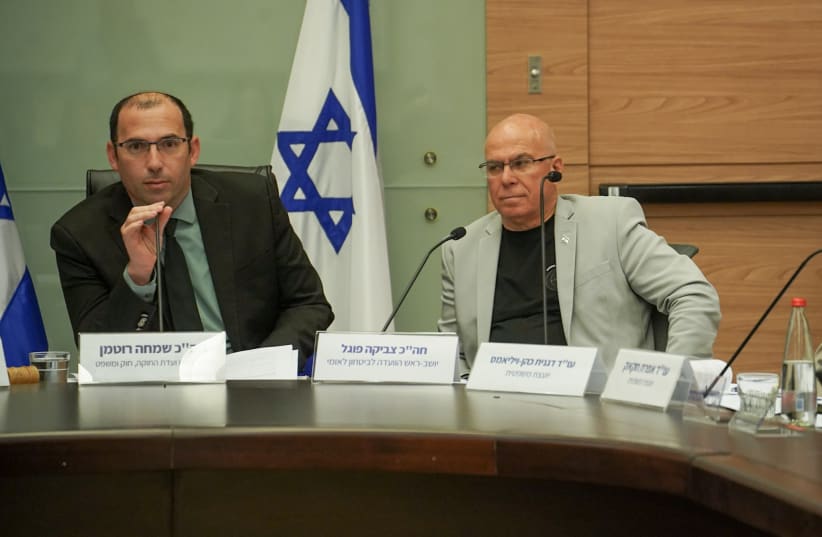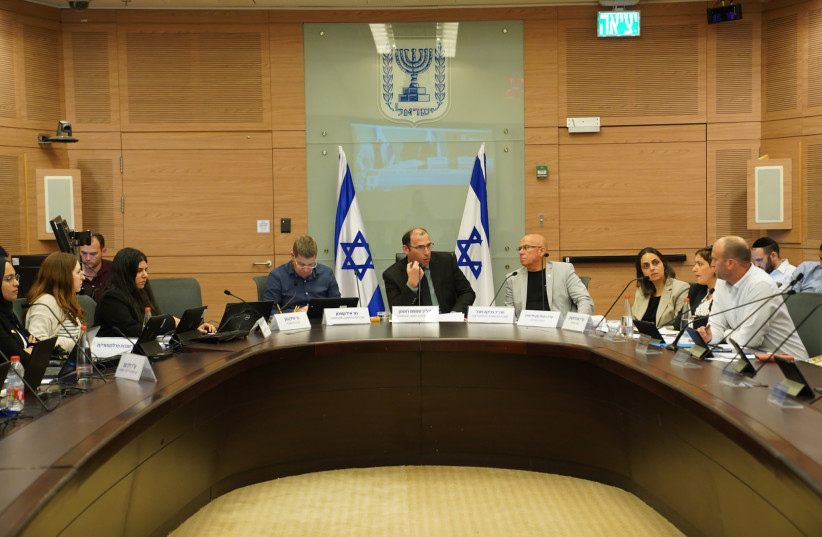A law to end protection rackets was discussed in preparation for its first reading in a joint Knesset committee session of the Constitution, Law and Justice and the National Security Committee on Tuesday.
Law Committee chairman Simcha Rothman described tackling protection rackets as one of the top priorities of the government, and said that the Knesset was fully “mobilized” to develop tools to help law enforcement. Rothman said that the crime was a concern of the police, National Security Ministry, Tax Authority and the Knesset.
“Protection [rackets] are one of the main causes of crime,” said Rothman. “The situations in which protection fees are collected cause difficulty in proving the crime, treatment and punishment.”
"Protection [rackets] are one of the main causes of crime. The situations in which protection fees are collected cause difficulty in proving the crime, treatment and punishment."
Simcha Rothman
National Security Committee chairman Zvika Fogel (Otzma Yehudit) said that the law needed to create tools to identify and address gangs extorting businesses through threats.
“The goal is to create specific laws that will give victims the courage to submit complaints or allow law enforcement actors to properly attack the protection rackets,” said Fogel.
Combatting racketeering in Israel
Israel Police said that the law would need to operate against the economic motives of the crime, by confiscating money from the criminals. If a racketeer went to prison for a few years but kept the money they’ve stolen over the years, then the police said that it wouldn’t solve the problem.
“Legislation needs to focus on the person who gets the money and not the victim,” said the Police.
The bill’s submitter, Otzma Yehudit MK Yitzhak Kreuzer, noted that some of the legal difficulty comes from the fact that “the protection [extortion] often comes from implications.”
The Northern District Attorney’s office said that there are a lack of complainants, and there is difficulty proving the connection between sporadic violence and extortion.
Rothman said that the lack of victims coming forward is more than about the language of the law, but a matter of faith in a proper response.
The law could potentially expand the criminal offense of extortion threats, and create a presumption that if someone receives money from a business owner without proper explanation, there is a suspicion that they are receiving the funds through extortion. Bill drafters are also seeking to increase the minimum sentence to three years and increase the maximum sentence.
The Justice Ministry noted that protection racketeering in Israel has evolved in recent years. While in the past criminals would simply initiate the crime by directly demanding fees, they are dividing different territories among themselves, and those that open businesses in these territories know in advance that they need to pay.
The protection racketeers also manage companies to launder their protection fees, requiring law enforcement to seek out fake invoices from companies that have a lot of income but no expenses.
Kreuzer described protection racketeering as a “national scourge” that impacts “about 70% of business owners, farmers and contractors.”
Israeli Presidency of Business Organizations CEO Hagar Yahav Biran said that the racket caused damages of NIS 1 billion to 1.5b annually in the agricultural sector.
Victims shared their personal stories with the committee, and spoke of how their property had been attacked with Molotov cocktails. Rothman proposed that the committees go on a tour in the south to see the effects on businesses first hand.

